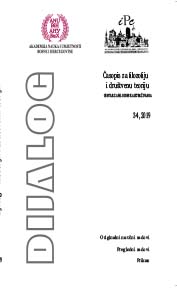Pravosudna saradnja u krivičnim stvarima u međunarodnom pravu
Judicial Cooperation in Criminal Matters in International Law
Author(s): Miodrag N. Simović, Amna HrustićSubject(s): Criminal Law, International Law, Criminology
Published by: Akademija Nauka i Umjetnosti Bosne i Hercegovine
Keywords: international cooperation; the Hague Tribunal; the International Criminal Court; primacy; complementarity;
Summary/Abstract: New forms of crime, the mutual connection of perpetrators of criminal offenses and the widely present element of foreignness in the commission of criminal offenses - condition the increasing cooperation of states in prosecution and extradition of both perpetrators and cases related to the commission of criminal offenses. However, there are a number of criminal offenses for which there is a general agreement that these are international criminal offenses. These criminal offenses are not within the exclusive jurisdiction of international courts, so the perpetrators can be tried for them before national courts as well according to one of the principles of establishment of competencies. The Hague Tribunal and the Rwanda Tribunal have primacy over national courts, while the International Criminal Court has complementary jurisdiction over the member states of the Rome Statute. We can talk about two models of international cooperation: vertical and horizontal, where vertical cooperation is between states and international courts, and horizontal - cooperation between states.
Journal: Dijalog - Časopis za filozofiju i društvenu teoriju
- Issue Year: 2019
- Issue No: 03+04
- Page Range: 21-38
- Page Count: 18
- Language: Bosnian

